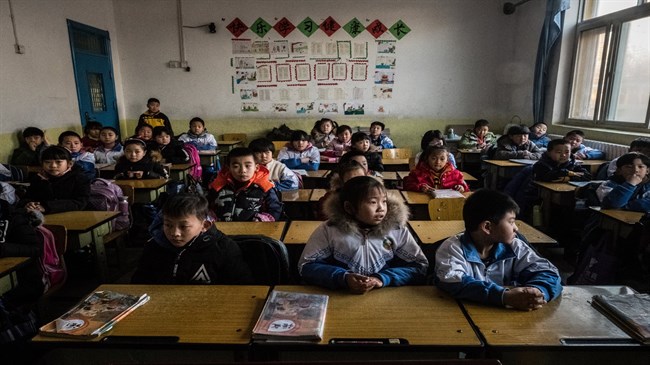
The provincial educational department rolled out the new guideline last week. Some schools have already implemented the guideline while others are preparing to. Most parents have welcomed the change, saying it will allow children to get more sleep, Xinhua reported.
Elementary schools in Zhejiang need to adjust school start times based on different grades and seasons, according to the guideline. Grade one and two should not start school before 8 a.m., while schools should start later in winter.
Before the guideline was issued, school start times for many elementary schools in the province were as early as 7 or 7:30 a.m.
"My son used to get up at 6:20 a.m. He needed to arrive at school before 7 a.m. So I had to get up at 5:45 a.m. to cook breakfast for him. We have followed the same routine for the past six years. I don't understand why elementary school started so early," said a mother surnamed Wang from Zhoushan, Zhejiang Province.
In 2016, a survey of elementary and secondary schools in the province showed that students lacked sleep. For example, only 54.1 percent of Grade four students slept ninr hours or more.
China's school management standards for compulsory education stipulate that schools should ensure that elementary school students can sleep 10 hours everyday. Experts also warned that insufficient sleep can easily affect children's physical and mental health, and emotions.
A primary school in Nanjing, capital of Jiangsu Province, has also delayed school start times, as well as elementary and secondary schools in northeast China's Heilongjiang Province.
Some cast doubt on the measures as they believe that students' sleep duration is actually decided by the amount of homework. They argued that teenagers face a mountain of homework and extra classes after school. Actions are also called for to reduce teenagers' workloads.
Liaoning Province's Shenyang Railway No. 5 Primary School is an exception as it does not issue homework for any students.
In 1984, the elementary school decided not to assign homework for students in a pilot class. Focusing on improving teaching methods and enhancing interaction between teachers and students in the class, the six-month experiment succeeded. The performance of students in the class was much better than the other classes. The school then decided to ban homework for all students.

Add new comment